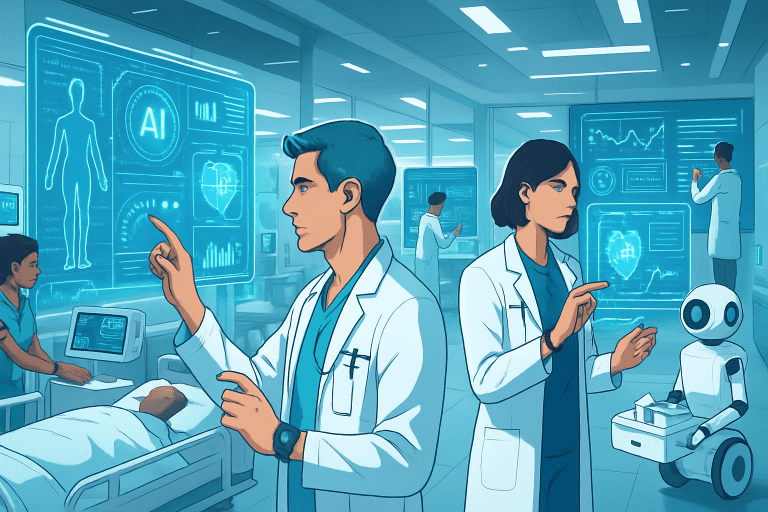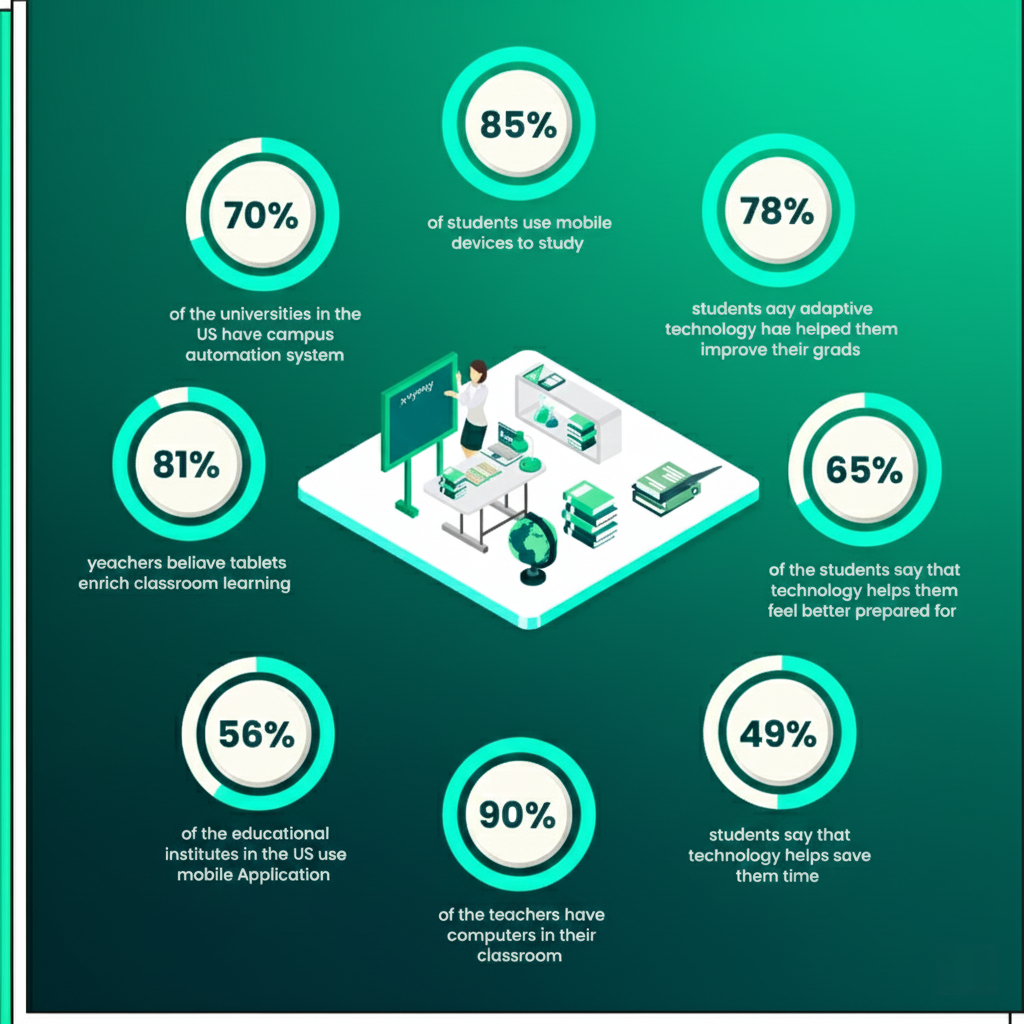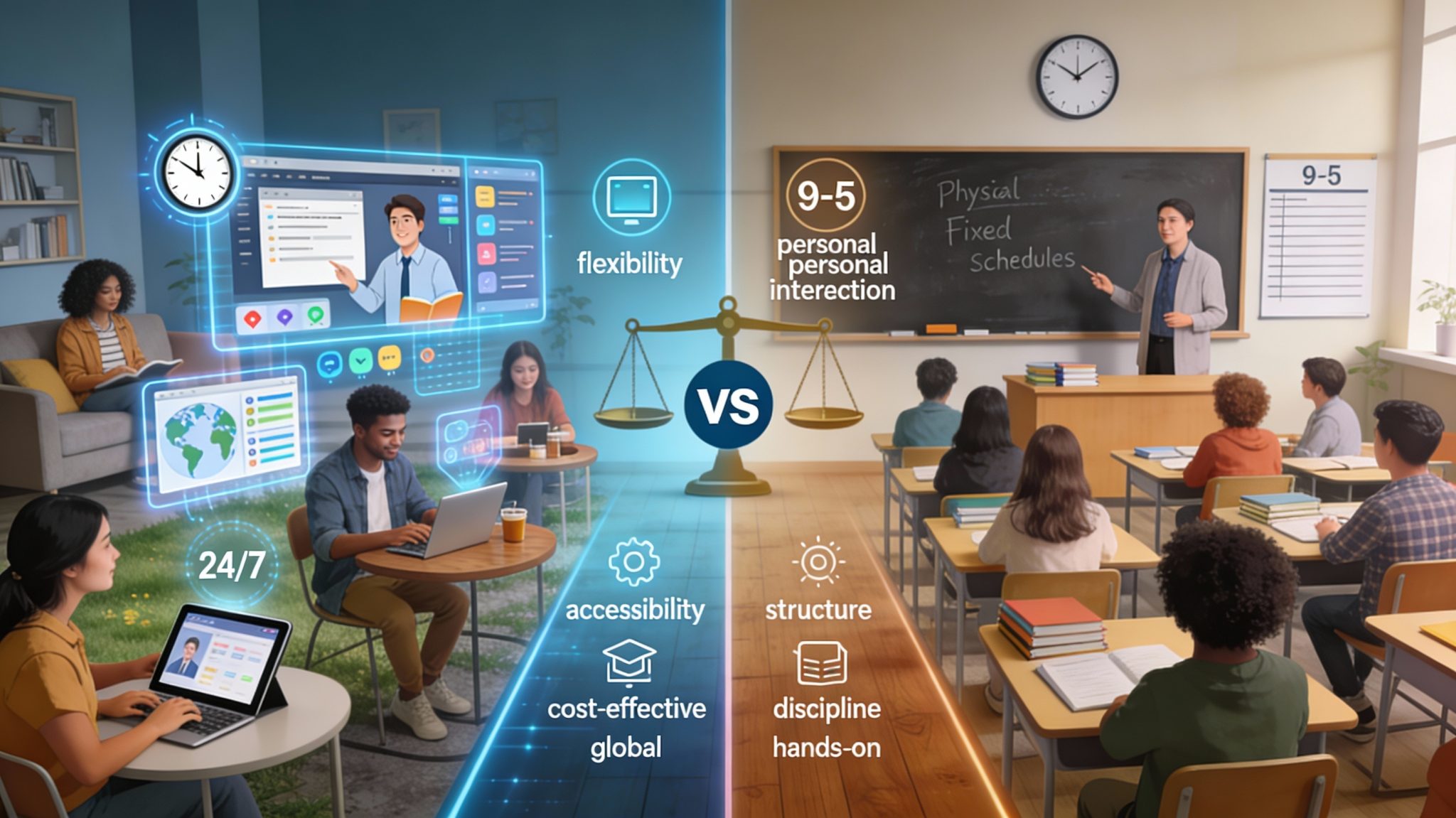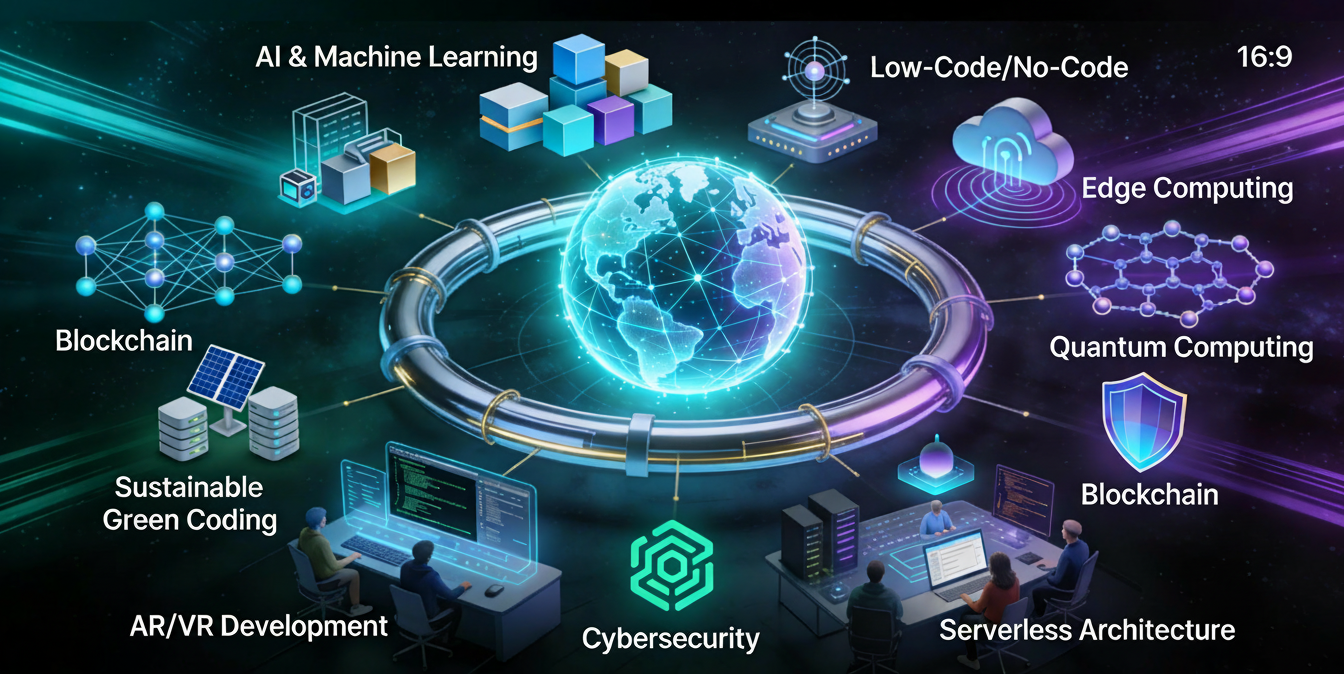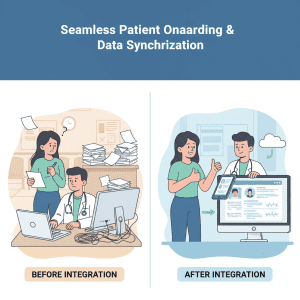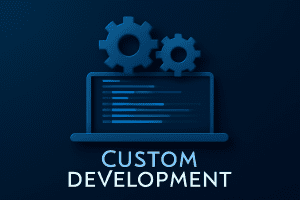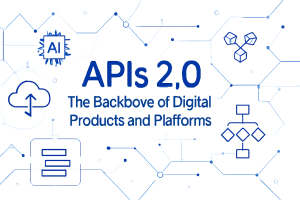Introduction
Healthcare is undergoing a digital revolution, and at the center of this transformation are Smart Hospitals. With the integration of technologies like IoT (Internet of Things), AI, Big Data, Cloud Computing, and Blockchain, hospitals are no longer just physical spaces for treatment — they are evolving into intelligent ecosystems that provide seamless care, improved efficiency, and enhanced patient outcomes.
In this blog, we’ll explore how smart hospitals are redefining healthcare operations, their key technologies, benefits, challenges, and future opportunities.
What Are Smart Hospitals?
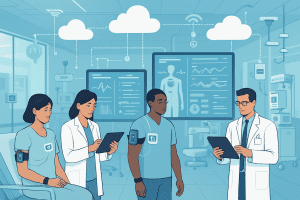
A Smart Hospital uses modern digital technologies to optimize operations, enhance patient care, and improve decision-making. Unlike traditional hospitals, which rely heavily on manual processes, smart hospitals employ connected devices, automated systems, predictive analytics, and AI-driven decision-making to deliver data-powered healthcare solutions.
These hospitals are not only focused on clinical improvements but also on operational efficiency, patient experience, and cost reduction.
Key Technologies Powering Smart Hospitals
The smart hospital ecosystem is built upon several transformative technologies:
1. IoT (Internet of Things)
IoT connects medical devices, wearables, and hospital equipment, enabling real-time patient monitoring and automated data collection. For example, wearable devices can track patient vitals and immediately alert doctors in case of anomalies.
-
Learn how IoT is reshaping industries in this blog.
2. Artificial Intelligence (AI)
AI assists in diagnostics, personalized treatment recommendations, and predictive analytics. From detecting diseases in early stages to streamlining hospital workflows, AI is the backbone of smart hospitals.
-
Explore how AI enhances service excellence in this article.
3. Electronic Health Records (EHRs) and Cloud Computing
Cloud-based EHR systems ensure seamless data sharing among healthcare professionals, allowing for collaborative care and better treatment decisions.
-
For more insights into AI and data applications, check AI in Finance use cases.
4. Robotics and Automation
Robotic surgical systems, automated medication dispensers, and AI-powered diagnostic assistants reduce human error and increase accuracy.
5. Predictive Analytics & Big Data
By analyzing historical health data, predictive analytics can anticipate patient needs, optimize staffing schedules, and improve resource allocation.
-
See how predictive analytics is applied in this detailed guide.
6. Blockchain Technology
Blockchain ensures secure, tamper-proof medical data sharing across systems, reducing fraud and enhancing patient trust.
Benefits of Smart Hospitals
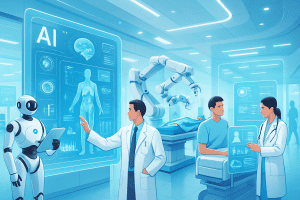
-
Enhanced Patient Care – Real-time monitoring and AI-driven diagnostics improve treatment accuracy.
-
Operational Efficiency – Automation reduces waiting times and optimizes staff workload.
-
Data-Driven Decision Making – Analytics empower healthcare providers to make better choices.
-
Cost Reduction – Preventive care and predictive maintenance reduce unnecessary expenses.
-
Patient Experience – Virtual assistants, telehealth, and mobile health apps provide personalized and convenient care.
For example, mobile app solutions for healthcare are already transforming the industry. Learn more about custom development in mobile app services.
Challenges in Implementing Smart Hospitals
Despite their promise, smart hospitals face several challenges:
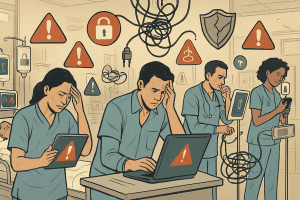
-
High Initial Investment – Implementing advanced technologies requires significant funding.
-
Cybersecurity Risks – With massive data flow, hospitals become vulnerable to cyberattacks.
-
Integration Issues – Legacy systems often cannot integrate seamlessly with modern solutions.
-
Staff Training – Healthcare workers need training to adapt to new digital workflows.
-
Regulatory Compliance – Hospitals must follow strict data privacy and healthcare regulations.
Use Cases of Smart Hospitals
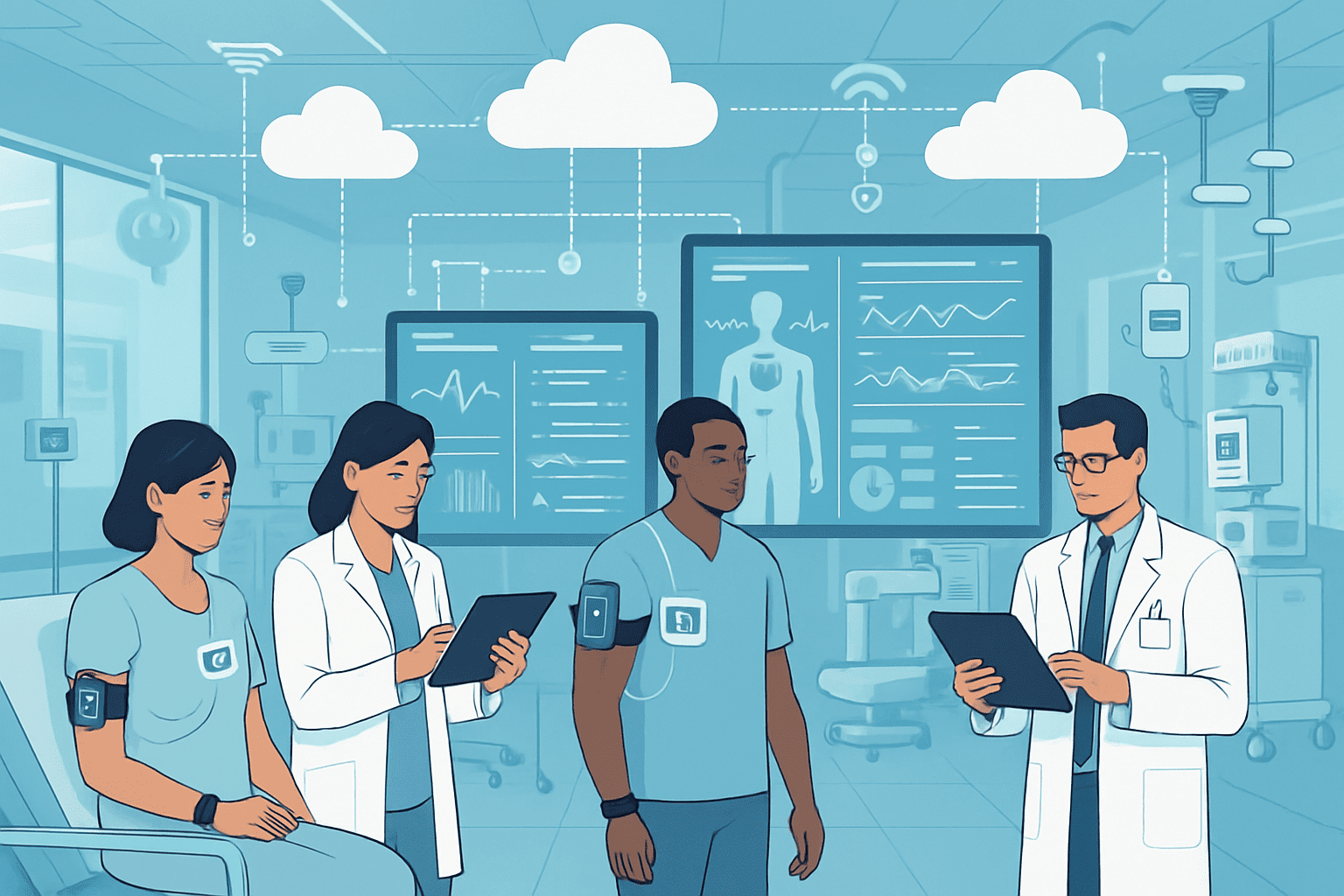
-
Remote Patient Monitoring – Wearables and connected devices monitor patients beyond hospital walls.
-
Smart Beds – Beds equipped with sensors track patient movement and vitals.
-
AI-Powered Imaging – AI improves the speed and accuracy of CT, MRI, and X-ray scans.
-
Telemedicine Platforms – Virtual consultations allow patients to access specialists remotely.
-
Mobile Health Apps – Patients manage appointments, prescriptions, and records via smartphones.
-
Explore app development strategies in this React Native vs Swift comparison.
-
Future of Smart Hospitals
Smart hospitals are expected to evolve further with:
-
5G-enabled healthcare solutions
-
AI-driven predictive healthcare models
-
Digital twins for personalized treatment
-
Advanced robotics in surgeries
-
Sustainable and green hospital infrastructure
The convergence of healthcare with AI, IoT, and mobile apps is creating a new era of precision medicine and patient-centric care.
SEO Backlinks Integration
Throughout this blog, we have naturally integrated useful links from TechOTDto enhance user experience and provide additional resources:
FAQs About Smart Hospitals
1. What is the meaning of a smart hospital?
A smart hospital leverages AI, IoT, cloud computing, and automation to improve patient care and hospital operations.
2. How do smart hospitals improve patient care?
By using real-time monitoring, predictive analytics, and AI-based diagnostics, smart hospitals ensure faster and more accurate treatments.
3. Are smart hospitals expensive to build?
Yes, the initial setup requires a high investment, but long-term benefits include reduced costs, better efficiency, and improved outcomes.
4. What technologies are most important for smart hospitals?
Key technologies include IoT, AI, robotics, blockchain, and cloud-based EHR systems.
5. What is the future of smart hospitals?
The future involves 5G, AI-driven personalized medicine, robotic surgeries, and eco-friendly hospital designs.
Conclusion
Smart hospitals are not just a vision of the future—they are already becoming a reality today. By integrating technologies like AI, IoT, robotics, blockchain, and predictive analytics, they are transforming the way healthcare is delivered.
For patients, smart hospitals promise personalized and efficient care. For doctors and staff, they reduce administrative burdens and improve treatment accuracy. And for healthcare providers, they ensure long-term sustainability with reduced costs and optimized resources.
As we move forward, hospitals that embrace these technologies will lead the way in providing next-generation healthcare services. The journey towards smart hospitals is challenging, but the rewards in terms of patient outcomes, cost efficiency, and innovation are unparalleled.
